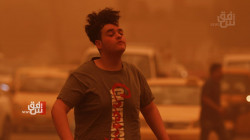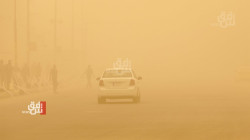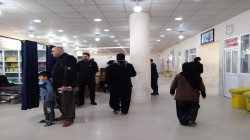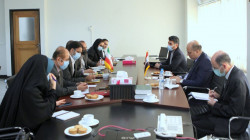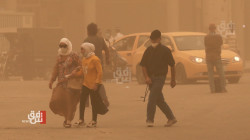Half-hearted attempts will not suffice.. 15 billion trees or the end of Mesopotamia
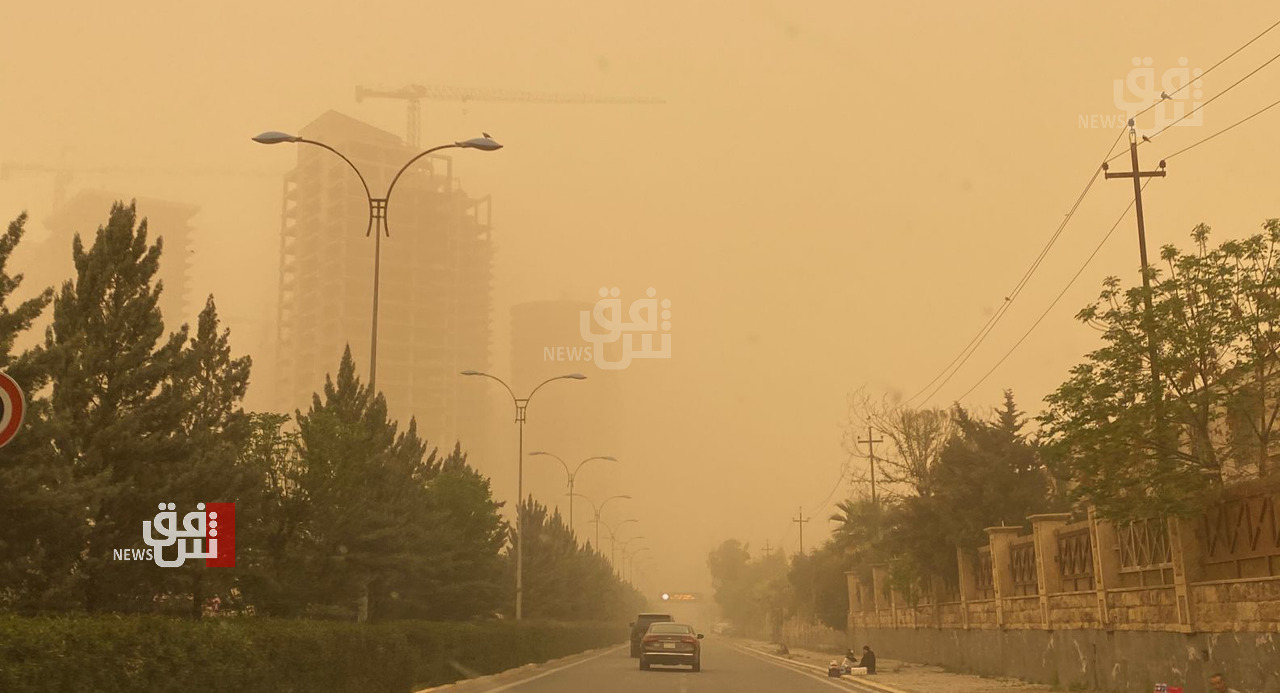
Shafaq News / Climate change, global warming, and the decline of green spaces, are key factors contributing to the expansion of desertification in Iraq.
Iraq is one of the five countries most affected by climate change. It is living proof that global action has yet to take place, that achievement is far more difficult than recommendations and decisions, and that the earth, particularly Iraq, is thirsty despite its long history as Mesopotamia, necessitating effective solutions based on trees and forests as humanity's last refuge to save the planet.
Iraqi ministries concerned with finding quick solutions to combat climate change and global warming blamed the government for the lack of financial allocations, essential to implement strategic projects that address desertification and increase the natural bumpers of dust storms that prevail in the atmosphere in most cities of the country.
"After joining the Paris Convention on Climate Change, Iraq prepared a national adaptation plan to minimize the effects of climate changes as one of five countries around the world that are more vulnerable soil, resulting from the neglect of infrastructure for more than 40 years, placing the country in countless environmental and health problems," said Amir Ali al-Hassoun, director of the information department at the Ministry of Environment.
"The Council of Ministers-approved national adjustment plan has subjected Iraq to numerous commitments and assigned roles to all Iraqi ministries. Those tasks boil down to promoting natural resources, increasing green areas, adopting renewable energy, and reducing long-term use of fossil fuels until 2030, i.e., relying primarily on renewable energy."
He added that Iraq is seeking progress in reducing climate impacts, "One of the measures used to reduce desertification is the initiative launched by the ministry in cooperation with the Central Bank to grant citizens and owners of industrial and agricultural activities interest-free loans to use solar systems that support renewable energy."
"One of the most important reasons for the increase in desertification is the decline in water releases, with only one-third of Iraq's water supply before 2003 reaching the country, as well as population growth, which has created a kind of chaos in converting vast agricultural land into housing, taking advantage of weak law and lack of authority."
"The ministry's monitoring committees are following up with the municipal departments on the procedures for not converting the land from agricultural to residential, per the basic design of the cities," he said, emphasizing that the remaining agricultural land is one-third of what it used to be.
Official statistics in Iraq confirm that desertification now affects 39% of the land. Furthermore, the increase in soil salinity threatens the agricultural sector in 54% of cultivated land, with the rainy season for 2020-2021 being the driest in 40 years, resulting in a severe shortage of water flow, reaching 29% in the Tigris and 73% Euphrates.
"One of the most important reasons for the country's desertification is the lack of financial resources to implement the ministry's strategy, as well as lack of rainfall, the loss of plant food, and the escalation of global warming. Half of Iraq is now threatened by desertification, and half-hearted solutions will not suffice, "said Hamid al-Nayef, spokesman for the Ministry of Agriculture.
15 billion trees..
"We need to adopt a special government program to reduce desertification and its repercussions and revive agriculture, especially since Iraq needs to plant 15 billion trees, which the ministry cannot do due to the lack of financial allocations," al-Nayef explained to Shafaq News agency.
He also called for the activation of a national program involving all ministries to afforest Iraq within specific time limits, and the employment of thousands to ensure the project's success. Otherwise, the prevailing dust storms will be inherent to Iraqi weather."
"To address the desertification crisis, the afforestation project requires an exceptional government effort," he said, adding that "1% of the revenues from oil licensing tours can be deducted and allocated in the field of agricultural revitalization, specifically afforestation of governorates included in those licensing round investment projects."
He continued, "The provincial councils must restore the green belt to its former state, and the ministry is prepared to provide seeds, fertilizers, and vaccines," noting that "current agricultural areas have shrunk to 10%, with agricultural areas reaching nearly 7 million dunams, down from 26 million dunams, suitable for agriculture. This is due to the lack of water releases and farmer subsidies, reducing financial allocations, the absence of agricultural strategies and solutions, and the presentation of only patchy solutions."
"Iraq now has over 18 million palm trees out of 30 million, mostly spread across large areas of Baghdad, Babel, and Diyala governorates. Basra's palm trees are drying out due to a lack of water and pollution."
According to a government source, "political parties were behind disrupting Saudi Arabia's initiative to afforestation al-Anbar's desert by planting 16 million trees and palm trees, and employing more than 6,000 people in the project that emerges from a Saudi project to afforestation the Middle East and reduce desertification by planting 50 million trees."
The source confirmed to Shafaq News agency that influential political parties, which he did not name, disrupted the project due to their insistence on receiving the funds allocated to the project, promising to implement it later, which bankrupted the country from many bounties.
"Desertification is the result of decades of mismanagement in the agricultural and water sectors, as well as Iraq's exceptional political and security situation, negative climate change, and global warming," the source explained.
International experts suggest that Iraq needs more oxygen-equivalent afforestation to control CO2 ratios, contribute to soil water conservation, and prevent rapid drought of water sources such as rivers.
